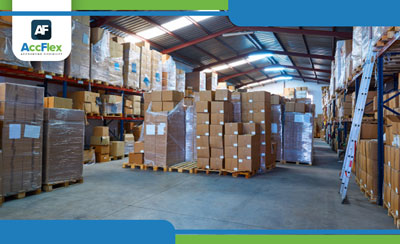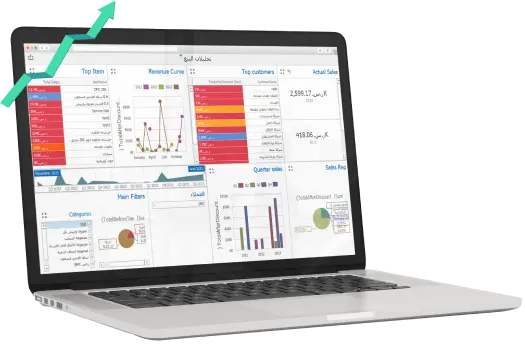No one disagrees about how important an inventory is as one of the most important pillars of the production process within the company, as well as one of the most important elements of the statement of financial position (as a current asset), however, it should be noted that the inventory management techniques are constantly evolving and updated as this (the inventory) element is critical importance for companies, so all companies always harness all the latest technology to improve inventory management techniques, to inventory management as accurately as possible, as quickly and with less effort, this is the difficult equation that all companies are seeking to achieve, through various inventory management techniques, including traditional manual methods, and modern inventory management techniques that are based on modern technology, and we will review the most prominent of these methods and how to apply them to inbound and outbound inventory management software.
1- Spreadsheet
This method is based on the manual system using a spreadsheet where all inbound and outbound movements from the warehouses are recorded, and the stock balance is reviewed, as well as paper-based stock-taking processes, in addition to inventory management and planning through the spreadsheet by determining the quantities of the items desired to be purchased for the next period necessary for the continuity of production "re-order point", as well as reviewing stagnant items, etc. of inventory management techniques, and this method (spreadsheet) is very slow and inaccurate in inventory management in addition to the possibility of human errors, and with the high production volume and the increase in products and inventory items, and with the presence of many branches, it is impossible to use these inventory management techniques.
2- Barcode System
This method is considered one of the automated inventory management techniques, which mainly depends on linking between inbound and outbound inventory management software and the barcode scanner (barcode reader); this method is based on having serial numbers attached to the product, these numbers contain an identification record of all the properties of the product and the scanner reads the barcode on the product automatically feeding inbound and outbound inventory management software with all data for the product to allow all operations to inventory management automatically and without the need for human intervention such as operations (receiving items- issuing items- returning items- inventory adjustments) as well as stock-taking processes, inventory valuation and reorder point notifications... etc. of the reports and data necessary to inventory management and this method is considered one of the most appropriate methods to inventory management, especially in light of the technological progress and increasing the volume of products and branches because of this method is characterized by achieving the highest levels of accuracy in the inventory reports as well as the speed of producing reports at any moment and any duration and reduce error rates by not human intervention in inventory management.
3- RFID (Radio Frequency Identification) Tags
This method how it works depends on having a chip that contains all data attached on the product that contains all of its data, in addition to having a barcode reader for those chip on the products, which is very similar to how the barcode works, but it is distinguished from it as being more suitable for higher production volumes and more products and also for international companies that have branches in more than one country where this system is characterized by more accuracy, effectiveness, and speed in sending and receiving inventory data when linked it to inbound and outbound inventory management software.
And after mentioning the most important inventory management techniques, none of these modern techniques can be applied except through the use of inbound and outbound inventory management software that achieve the purpose of inventory management by providing reports and inventory information to all company departments with the utmost accuracy, as quickly as possible and with less effort, as the movement of inbound and outbound inventory items affects both sales and purchases, and to learn about the role that the movement of inventory items affects sales and purchases, we will review the best inbound and outbound inventory management software for sales and purchases in Egypt and the Middle East.
The best inbound and outbound inventory management software for sales and purchases
Inventory management software is characterized by many advantages, including
1-The remarkable customization of inbound and outbound inventory management software screens for sales and purchases
There is a screen for each separate operation, there is a screen for the sales transaction, a screen for linking sales and warehouses, "warehouse movement", a screen for invoicing, a screen for adjustments and screens for reports, as well as for purchases, there is a screen for the purchase transaction and returning material to suppliers, which makes the ease and accuracy of entry a unique feature in inventory management software.
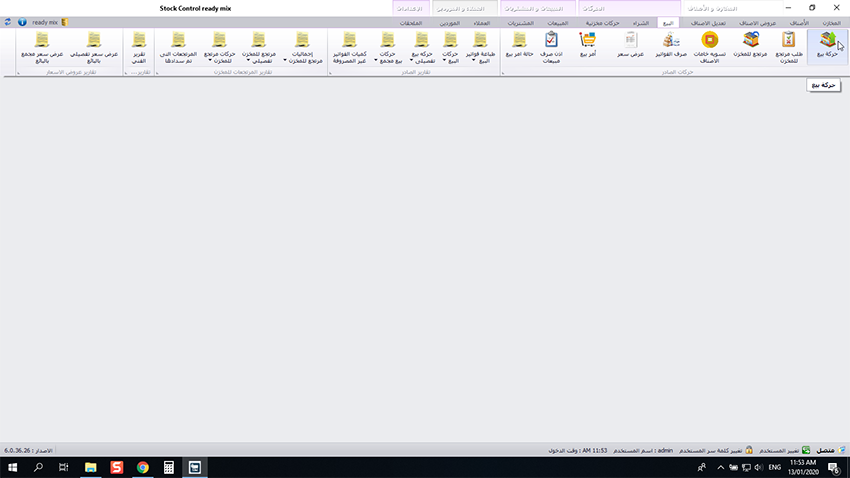
2-The flexibility of entry and linking between company departments in inbound and outbound inventory management software
The sales transaction can be created from the quotation provided to the customer without the need to enter the invoice again, as well as for purchases, the purchase invoice can be created from the purchase order provided to the supplier, and the sales invoice or the purchase invoice can also be created without reference to the quotation or purchase order, making the flexibility of entry into inventory management software are the most remarkable.
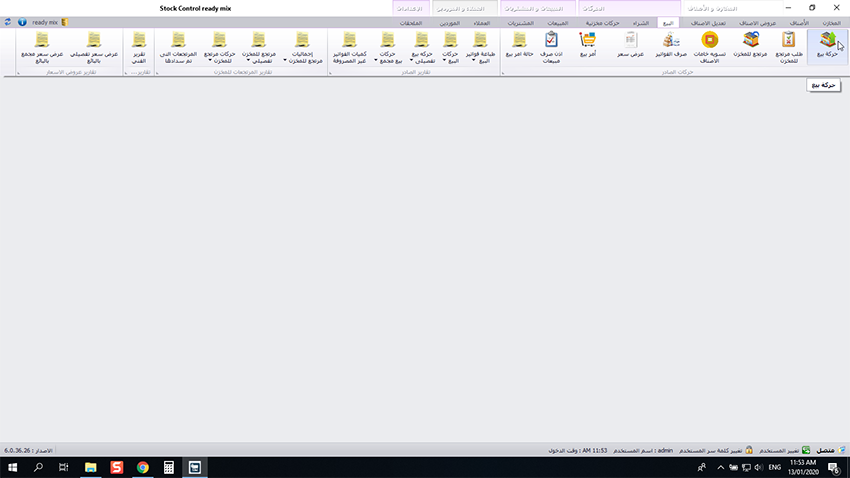
3- The ability to create a quotation from the software
You can create a quotation from the software without the need to enter items, as the software imports the items from the warehouse screen at their prices and codes, and prices can be controlled and added conditions to a quotation as desired by the company.

4-The flexibility of calculating taxes in inbound and outbound inventory management software
It can be added the tax to each item, as the taxes for the items can vary, and inventory management software provides you to add different tax rates that are suitable for companies that sell or purchase items of different tax rates, and it is also possible to unify the tax on the items according to the nature of the company and the nature of the activity.

5- Re-evaluation of items prices automatically in inbound and outbound inventory management software
It updates the price valuations as soon as you change the prices of items, either for sale or for purchase, once the prices are updated; it calculates averages for those prices, a feature that is only available in inbound and outbound inventory management software.

6-Sales and purchasing transaction reports in inbound and outbound inventory management software
The existence of a set of reports covering all sales and purchases transactions, whether by displaying all the sale and purchase invoices, their dates and the items in them, and whether entered from a quotation/ purchase order or entered directly and the remainder of them, this provides scope for full control of the sales and purchases and produce reports that help all departments of the company and senior management for making appropriate decisions.

After mentioning the advantages of the best inbound and outbound inventory management software, we will talk about ways to organize the warehouse.
Ways to Organize Warehouse
The warehouse organization methods are considered one of the most important warehouse management success factors within companies, which are several steps and policies that must be followed for the warehouse to be organized optimally, the following are the most important methods of organizing the warehouse:
1- Warehouses must be organized so that the inventory items are placed inside the appropriate warehouse in terms of temperature, humidity, sunlight, and other factors that affect the product, due to the nature of the product itself.
2- Organizing the warehouse itself by preparing suitable shelves for the items and collecting similar items to each other in an accessible way.
3- Providing all means of safety, such as fire extinguishing methods, alarm systems, and removing electricity and energy sources from the items.
4- Barcode sticker "serial number" on each item, which facilitates the process of recalling items with ease as well as the ease of the stock-taking.
5- Providing warehouse corridors in a way that facilitates items movement inside and outside the warehouse.
6- Organizing the warehouses so that each warehouse is close to its activity, so the raw materials warehouse is inside the factory, the finished product warehouse is near to the markets, the spare parts warehouse is near to the garage of cars and equipment, the records warehouse is near to the company’s administrative office and so on.
And control these items; companies followed the inbound and outbound system, which makes it easier for them to inventory control, will be described the inbound and outbound system in companies as follows
Inbound and outbound system in companies
To inventory control within companies, they follow the method of inbound and outbound of the inventory goods so that it is easy for them to perform a stock-taking of items, then the goods receipt notes goods received to the warehouse are prepared and the issuance stock voucher, so any receiving to the stock balance (inbound) and any reduction of the stock balance (outbound) whether the receipt or issuing from a warehouse to a department within the company or from a warehouse to a warehouse and tightly control over the inventory goods, companies vary in implementing this, some of them depend on paper-based records and some of them depend on inventory management software, and certainly, reliance on paper-based records is very slow and the possibility of human error in addition to the lack of credibility and speed in providing the necessary information to make decisions, unlike the use of inventory management software that achieves the company's objective in managing and controlling inventory and performing stock-taking as easily as possible.
We will review the role of inbound and outbound inventory management software in developing inventory management and control within companies by providing the best inbound and outbound inventory management software for sales and procurement in Egypt and the Middle East as follows
Features of inbound and outbound inventory management software
Through these steps, we will review the most important features of inbound and outbound inventory management software
1-The remarkable customization of inbound and outbound inventory management software screens
There is a “From Warehouse” transfer screen and another for “To Warehouse” transfer, that is, a screen for receiving inventory items “Inbound” and a screen for issuing inventory items “outbound” with setting authorizations for each user which no leaves field for error or distraction and increasing the degree of security in the entry.

2- Revaluation accounts when transferring between warehouses
The presence of clearing accounts- re-evaluate the prices of the stored goods when they are transferred between the warehouses, where the goods were purchased at more than one price and this account calculates the average prices of the items so that the cost of the items is more accurate and this feature that is only available in inbound and outbound inventory management software.

3-The screen of adjust transfer movements between warehouses
The presence of a screen to adjust transfer movements between warehouses, the software is not only to create the transfer between the warehouses but also provides you the ability to adjust the transfer movements, if there is a quantity received and you want to adjust the received quantity, you can through this screen adjust the transfer movements to reach the most accurate balance of items.
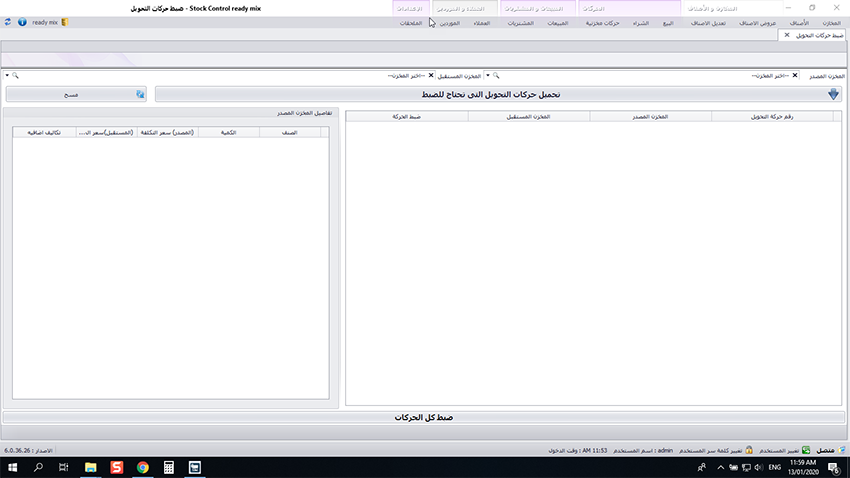
4-The flexibility of creating inventory adjustments from the return/ issue transactions screen
The presence of return/ issue transactions screen and their function does not stop when issuing or returning of the inventory items from and to the warehouse but also return transaction and issue transaction can be created manually through the screens, which allows to create the inventory adjustments that done after the stock-taking process, which makes the software flexible in creating the inventory adjustments.
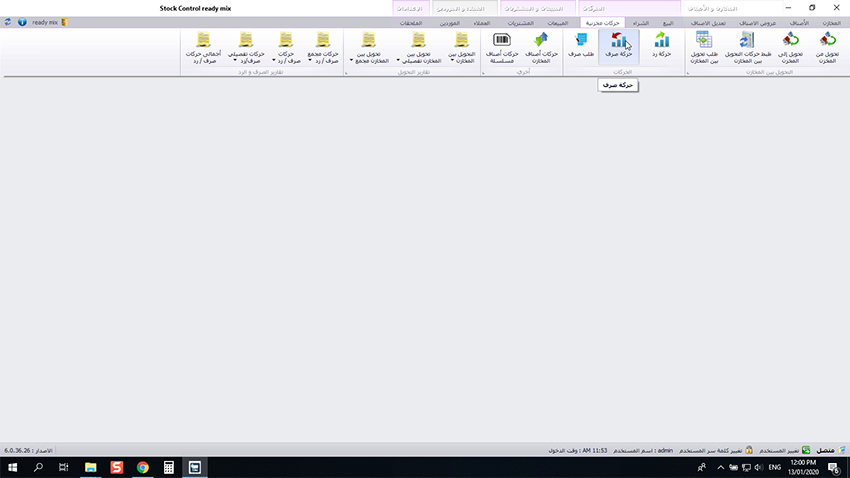
5- Creating stock-taking automatically
The presence of a screen for the stock-taking, the stock-taking is a complex routine process that requires considerable effort if done manually, but one of the most important features of the software is the presence of a screen to create a stock-taking automatically once the screen is opened and the inventory is selected that you want to create the stock-taking and adding the actual balance through an Excel file where it provides the software the feature of importing files from Excel, the software performs a match between the book balance within the software and the actual balance of Excel and shows the differences, whether they are deficit or surplus.
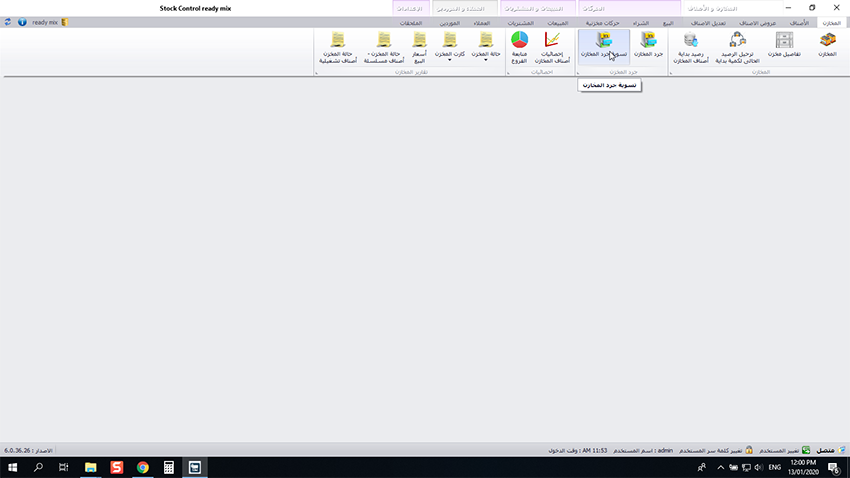
6- Creating inventory adjustments automatically
The presence of a screen for inventory adjustments through which the software creates the adjustment automatically to reach the true balance of the warehouse, after performing a match between the actual balance and the book balance, the differences appear, whether the deficit or the surplus in the items and through this screen, you can add the deficit and remove the surplus to reach the actual balance in the warehouse, this feature is considered the most important strengths of the best software of inventory management.
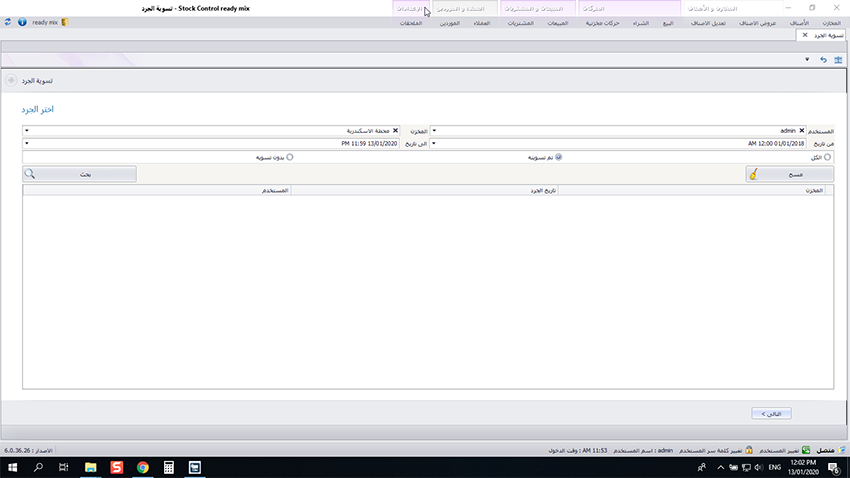
7-Variety of ways to add items in inbound and outbound inventory management software
The presence of two screens to add items, the items can be added automatically through the barcode "serial number" on the item and can be added through the adding items screen that does not have a serial number and this feature supports the flexibility of adding with ease, which does not stop the workflow within the company.
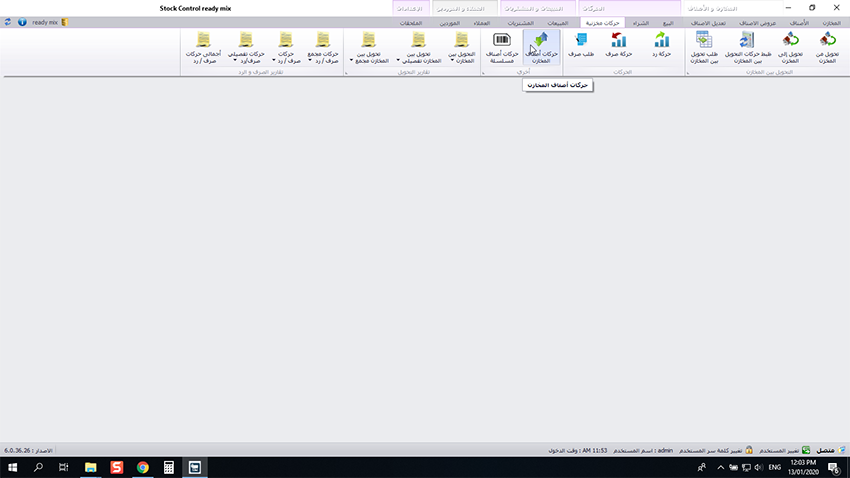
8- Item movement reports in inbound and outbound inventory management software
It provides a wide range of item movement reports, so all movements made on the item can be known of receiving and issuing and others at any date and any warehouse level, as well as inventory reports, their balances, and stock-taking, covering all reports of inbound and outbound.
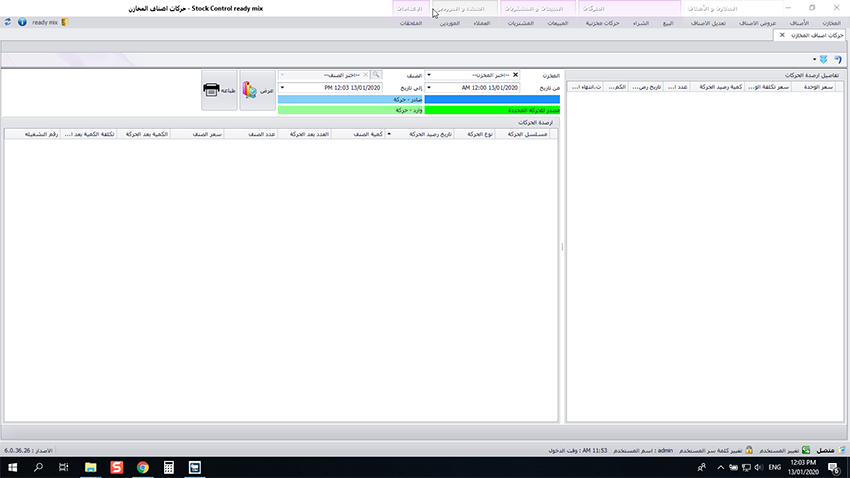
Modern software has a significant role to play in developing inventory control and stock-taking in ERP accounting software for companies, as we have reviewed inbound and outbound inventory management software
Which is the best accounting software in inventory management and inventory control, we find that the difference seems very large between relying on traditional "manual" systems for inventory control and relying on inventory management






